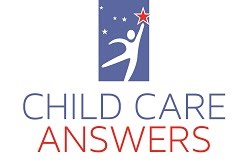Back to School: Tips and Tries for Preschoolers
By Ossining Children's Center
It’s August - the time of year when our attention turns from summer fun activities to preparing children to enter school for the first time, or return to a new level.
Ossining Children’s Center, the not-for-profit early education center in Ossining, NY, would like to make the transition easier for parents and children and offers tips and tries to make September’s entry to preschool as painless and exciting as possible.
FIRST TIMERS-3 Tips for preparing your child for preschool:
Begin talking about the new pre-school/day care center in August. Talk about what the child can expect including teachers, other children, games, etc.
Take the child to visit the center and meet the teachers
Make practice runs to the school – if possible – 2 weeks before the first day to get the child accustomed to the new schedule and familiar with the school itself
If possible, make a play date with another youngster entering the school
Get a book about school at the local library and read it to your child.
WHAT TO PACK - 5 Items to include in your child’s backpack:
1. Especially for first-time children, pack a picture of yourself with the child.
2. A full change of clothes
3. Any medical information the school may need including pediatrician’s phone number and medical issues the child has
4. A plastic, waterproof folder for teachers to send notes and information home in
5. Transitional object, i.e. a favorite stuffed toy or blanket
WHAT NOT TO PACK – Items that could cause problems:
1. Toys
2. Candy, gum, soda, food
HOW TO MAKE THE TRANSITION WITH YOUR CHILD:
1. Plan to spend part of the first morning with your child, or nearby. Tears are normal and common for both child and parent. For some children, the transition is made easier if it is gradual. Each child is different, though. Talk with the staff about separation issues.
2. On the other hand, don’t stay too long. Often a child’s crying stops shortly after the parent leaves. Let the staff be your guide on this – they have helped many children and parents through separation anxiety.
3. Talk to your child about their teachers and new friends. Ask questions to determine if they are adjusting.
4. If your child has concerns about a teacher or another child be sure to let the school know as soon as possible.
5. When possible, begin to make play-dates for older pre-schoolers with classmates.
This is a highly charged time for all children and parents and there are bound to be moments of tears and frustration for everyone. As much time as you can devote to gradually starting your new schedule and familiarizing both your child and yourself with all of the new adjustments that will have to be made – will be time well spent.
Ultimately the most important thing is to assure your child that pre-school and learning are exciting and fun. Stay in communication by asking questions about their day, their activities and the new things they experienced.
5 years ago









No comments:
Post a Comment